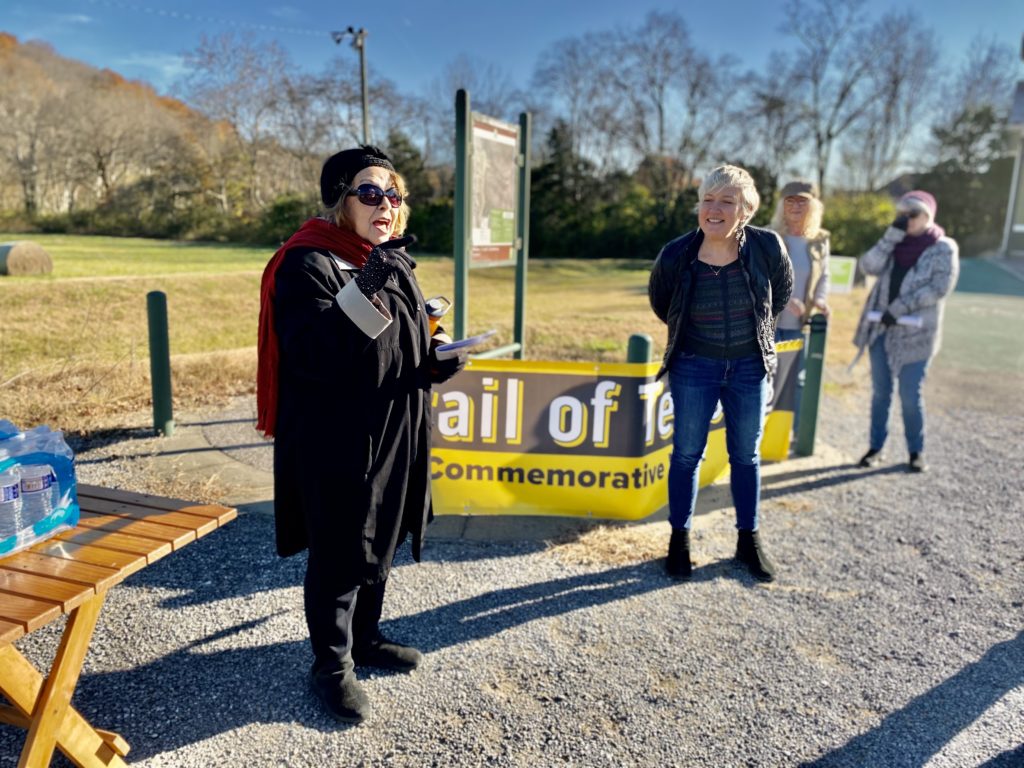
Starting in October 1838, more than 16,000 Cherokee people who had been forced from their homes in Alabama, Georgia, North Carolina and Tennessee began their journey to Indian Territory, in what is now known as Oklahoma.
Undertaken through the fall and winter, the journey was fatal for a fourth of the population. The various routes became known collectively as the Trail of Tears, which passes right through present-day Nashville. The Cherokee were not the only people swept up in the ethnic cleansing of the Southeast. Members of the Muscogee, Choctaw, Chickasaw and Seminole nations were also forced to walk the trail.
Today, some portions of the trail are clearly marked, with interpretive panels and information for visitors. Other segments are less clearly marked, if they’re marked at all. We talk with some of the people working to keep this history alive.
But first, health care reporter Blake Farmer has an update on the Vanderbilt pediatric transgender clinic and the political campaign against it.
Guests:
- Blake Farmer, WPLN senior health care reporter
- Toye Heape, vice president of the Native History Association
- Melba Checote-Eads, member of the Muscogee Creek nation
- Helen Tarleton, Whites Creek resident
Previous WPLN coverage:


